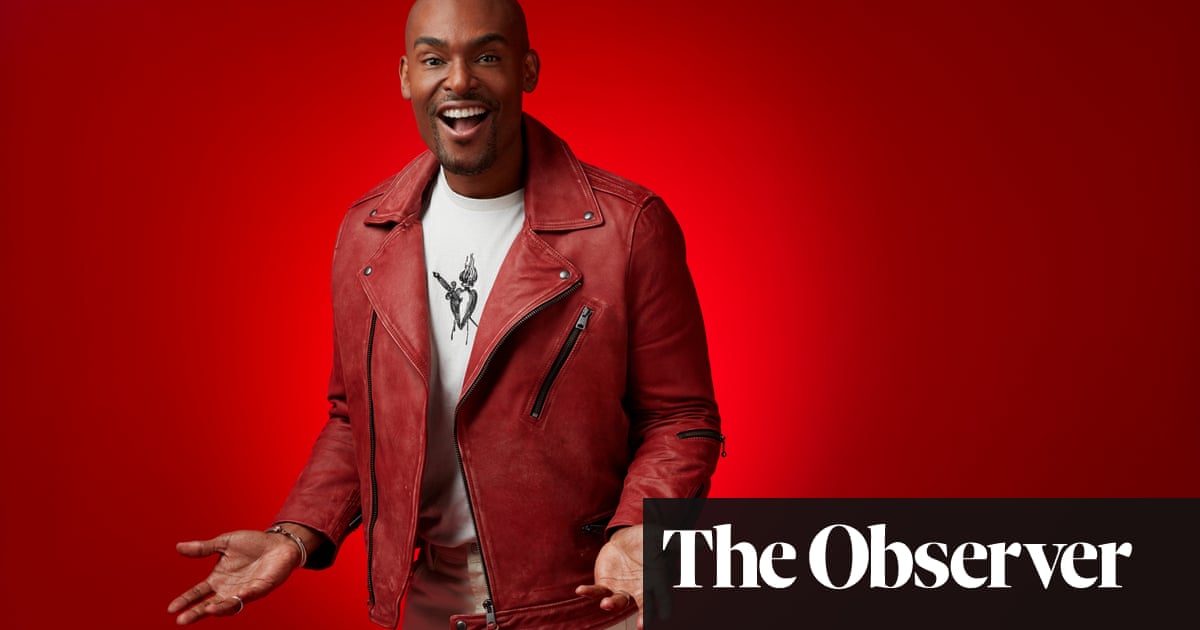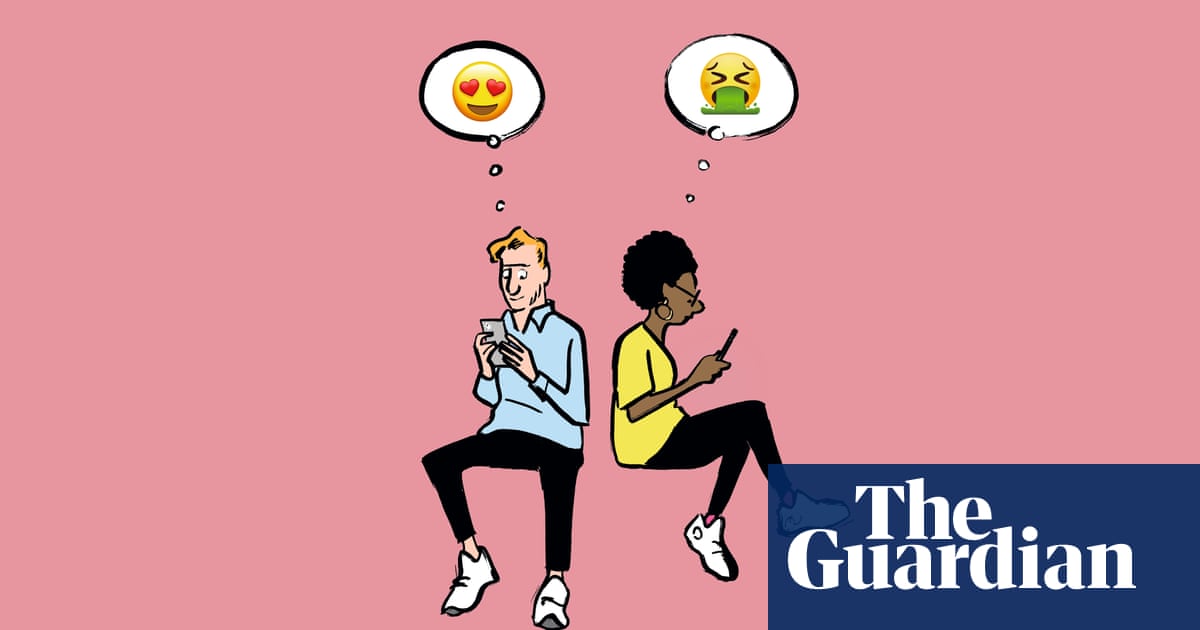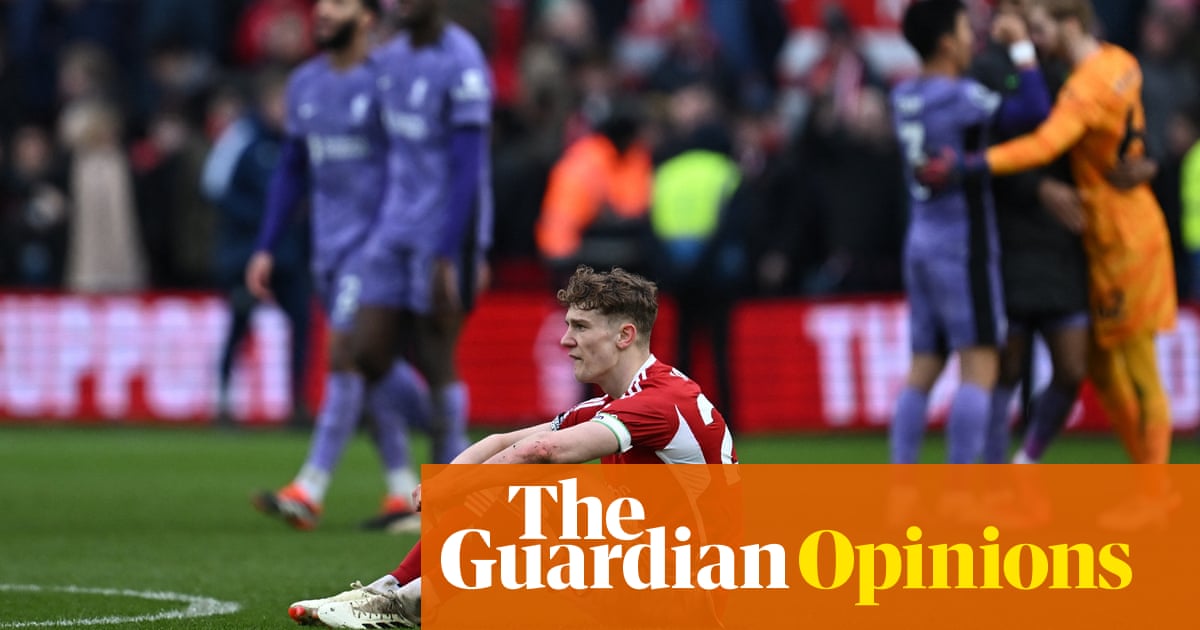
The business of love is large and red, an industry that trades in both romance novels and mini-breaks, engagement rings and self-help books. Somewhere near its centre is a 49-year-old man called Paul C Brunson. His career began as a matchmaker, working in Washington DC, though Oprah Winfrey claimed: “Paul is much more than a matchmaker, he’s a life coach.” After moving to the UK five years ago, he became the head of global research at Tinder, and famous as a relationship expert on TV programmes such as Married at First Sight. This is the show that broke ratings records for Channel 4. It’s the programme watched by 2 million people an episode, where a matchmaking panel (led by Brunson) sets up heterosexual couples who will be introduced at the altar; eight weeks later, each couple decides whether or not to divorce. This is the high-stakes show where scenes of grand human failure are intercut by awkward banter and the traditional love story is chopped up, oiled, and presented to millions, backwards. Brunson is the gentle expert who anchors the show and guides couples together, a quiet sort of god.
“Matchmaking is the second-oldest profession in the world,” says Brunson. “It’s very small, but very important and very often misunderstood. Because a lot of us live with the belief that love is mystical.” It’s not just that we live with this belief, it’s that we want it to be so – chemistry, sparks, planets aligning. Brunson’s book, Find Love, has little time for magic. “I believe this is the most scientifically researched book on the topic of finding a partner that’s ever been published,” he says confidently.
He’s at home in south London, sitting in front of a Basquiat print, his charisma so great it threatens to overwhelm the wifi. For this book, he’s attempted to summarise and utilise research from anthropologists, biologists and evolutionary psychologists in order to help readers find good relationships. “The bulk of [self-help] books, I think, are very soft and, quite honestly, serve an injustice. Because they validate behaviours that will continue to put us in bad positions. What I’m trying to do is say, let’s look at these hard concepts that we don’t want to talk about.” And then, let’s find love.
First though, Brunson tells me how he became so passionate about the business of relationships. In his 20s he was working in finance, for a Turkish billionaire, and read two heroes – Sheryl Sandberg and Warren Buffett – saying they believed the most important career decision was who you chose as a partner. As he explains why, citing studies from Harvard that suggest a strong partner protects you from stress, therefore helping you climb the corporate ladder, I find my brow furrowing – perhaps I’m still stuck on the mystical ideas of romance, but it feels like an oddly cynical admission. Are finance and love still linked, for him? “I’ve never thought about that. But I guess that’s what inspired it. I started looking at the implications of a strong partner on how much money you make, to be honest.”
He chuckles. In 2009, with his wife, Jill, he founded his matchmaking agency. “Most of my clients were executives, high income, hard charging and they would present to me what they wanted, like spreadsheets.” But every so often a different kind of client would arrive and Brunson would reshape both his strategies and his expectations.
One of Brunson’s oldest clients was in her late 70s. “This particular woman said, ‘Paul, I’m looking for one thing: I need you to make sure he can walk up the stairs.’” She was open to the idea of anyone, regardless of race, age, appearance. It changed how he thought about what relationships could be and the idea that you could create love. It taught him: “Soulmates are not found, they are truly created.” He dug deeper into his research. He started to use psychological models, “Like Carol Ryff’s six dimensions of psychological wellbeing, to help match you with the strongest partner.” He started to think about the role of undiagnosed trauma, of our parents’ relationships, about the possibility of change and expectations. He realised, we don’t simply break up because of infidelity, or money. “No, I believe the number one reason is: we just choose bad partners, or worse, we allow bad partners to choose us. And we’re using no criteria to truly determine, are they the best for us?”
Matchmaking is a fascinating business, not least because, Brunson says, they, “Hit at less than 30% success, on average.” But then, compared with going to a bar on a Saturday night or dating apps (stats are hazy, but one survey suggests the “success rate” of Tinder is 16.51%), he points out, that’s still relatively high. “However, the primary responsibility of a matchmaker, in my opinion, is to create hope. And that’s exactly what I did. I always knew my primary job was to help keep the belief going.”
What are we doing wrong then, when it comes to relationships? He nods, as if, don’t get me started. “Not putting the rigour into selecting our partner. Quite honestly, when I got married 22 years ago, I didn’t realise how big the decision was.” And it’s not just about who you marry. “What are the implications of you ‘just having a good time’ with a bad person? Or, as I call it, ‘the dark tetrad’?” These are people with the personality traits of sadists, narcissists, psychopaths and sociopaths. These are people we should not be having drinks with, let alone one-night stands.
“The behaviours that they have could shift your attachment style. You could be very secure, but based on how they’re not emotive, you could become anxious, you could begin to have traumatic triggers reinforced. Running around casually with someone like that could drop your self-esteem, make you doubt yourself, increase the level of stress that you have…” What we’re doing wrong, he says, is: “We’re not taking it seriously enough.”
As well as Married at First Sight, Brunson is best known as a pundit on Lorraine and Celebs Go Dating, where TV personalities date members of the public. “This is my opportunity to teach,” he says. People tell him they watch with their partners, or their family, “And they’ll debate it out. And that’s why this is so powerful, because that in itself is therapy.” There’s a waiting list of up to two years, he tells me, to see a therapist on the NHS. “So this programme, could be the only therapy in their life. And that’s the reason why it’s so important. It’s critical.”
Last year, Married at First Sight clocked up a total of 6.8bn viewing minutes online. Which makes perfect sense – as entertainment it is awkward, moving and delicious – but I always wonder why on earth anybody would sign up to participate. There are three reasons, says Brunson. “Every single person on TV, and I include myself in this, has an interest in their brand being raised. Everyone would love to make more money. Have more exposure. More influence.”
And the second reason? “Well. There’s a lot of people who come on to the shows who truly believe they’ve done everything right. Then we shine a mirror up and say, ‘No, you haven’t.’ The other piece of it is that there are people who come on who desperately want to find love.” The three things, he wants to stress, are not mutually exclusive. “Look at the activity afterwards of anyone who has been on Married at First Sight. That’s the key. Everyone is trying to leverage their moment of fame. But – many of them are in relationships.” He adds, proudly: “We have the highest success rate out of any franchise. But you know what’s so interesting about this? In my second year, I got into trouble with Channel 4 for saying I was unhappy with our success rate.” He became “hyper-focused” on finding better matches. But then he started to notice something. “The audience is not really interested in the matches. They’re interested in… everything else.” The pursuit of relationships was a red herring. Maybe what we’re talking about when we talk about love is simply a good story, a bit of drama, perhaps a drink thrown in a face.
Is it a particularly hard time to find a partner? “We romanticise the past,” Brunson sighs. “We think that it’s never been harder to find love. But it was more important in the past, because who you chose as a partner decided whether you stayed alive the next year. Finding love, we have to understand, is a new concept. And our definition of love has changed – what we are asking for today is something that we have not asked for historically. We are asking for someone to be our everything.” Data from 2020, he says, suggests that 80% of marriages have lower satisfaction than ever before, but 20% have more satisfaction than ever before. “So when I look at that, I actually am hopeful and I say, ‘Not only can you find love, but the love will change your life. But you have to go about it strategically.”
It all sounds, I offer quietly, a little bit exhausting. Do we… have to? He talks about hunter gatherers, how we used to choose partners based on mitigating threat, eventually graduating to a time when we chose them as companions, where the threat we’re attempting to mitigate is “mediocrity”. “One of the best ways to fend off the threat of stress is to co-regulate. Now, what does that break down? That’s Stephen Porges’s polyvagal theory, right? It states that the way to co-regulate is with another nervous system.” You could get a dog. “However, if you have a lover, there’s an even more optimal delivery, because you could get all of that in addition to sexual stimulation. So that’s why I’ve reached a point where I’m pro committed relationship.”
Does that mean marriage? “I’m open to any form – it can be a polyamorous relationship, it can be opaque, but a long-term committed relationship is what delivers you the highest likelihood of reaching a eudaimonic level, as Aristotle would say.” (I looked it up: eudaimonic wellbeing – as opposed to “hedonic” – is the type of happiness that is achieved through “self-actualisation” and having meaningful purpose in one’s life.)
We’re wrapping up the interview when Brunson asks, honestly, what I thought of his book. I think it will be really useful to readers, I say. It’s accessible, interesting, funny. But, “But?” This is not personal, I stress (to a man so charming and loquacious I realised, when transcribing the interview, I’d started listening to it as if a podcast), but the conservatism at the core of these sort of self-help books bothers me. What if it was OK to be single? Of course, people want to find love. We are rewarded in a multitude of ways for getting married, both financially and socially. I’m devil’s advocating here, I tell him, but it’s very difficult, even today, to live as a single person in a world structured around the nuclear family. Singleness is seen as a threat to society. Marriage is a structure that underpins the patriarchy – women give up their financial independence because our culture tells them a relationship or family will make them whole. I came away thinking, I say, why should your readers change themselves to fit the world? He smiles. “When they could change the world instead?” I guess that could be the next book.
Find Love: How to Navigate Modern Love and Discover the Right Partner For You by Paul C Brunson is published by Ebury at £16.99, or £14.95 from guardianbookshop.com
Styling by Sam Deaman; grooming by Claudia Cavalli using Ordinary and Victoria Beckham beauty; photography assistant Jake Newell












